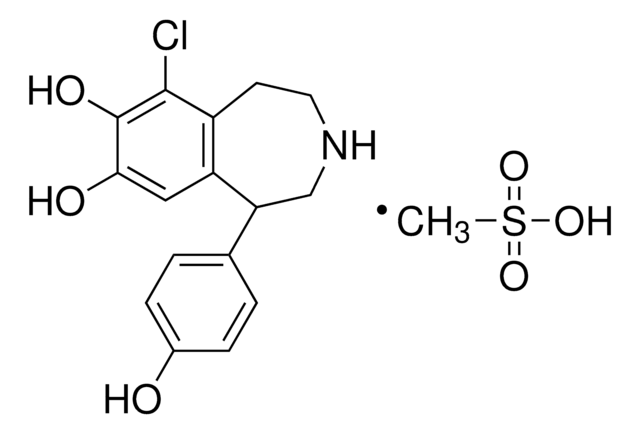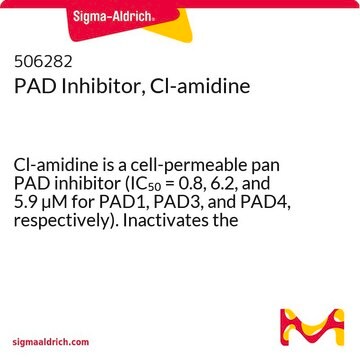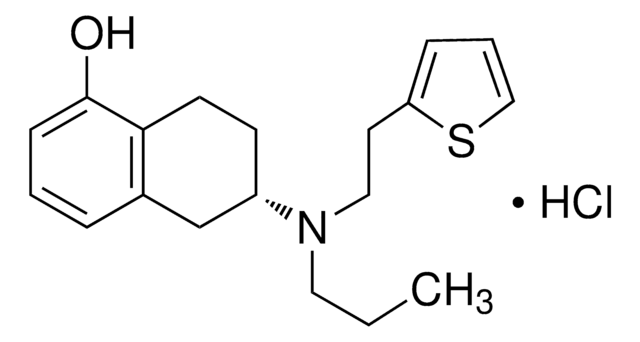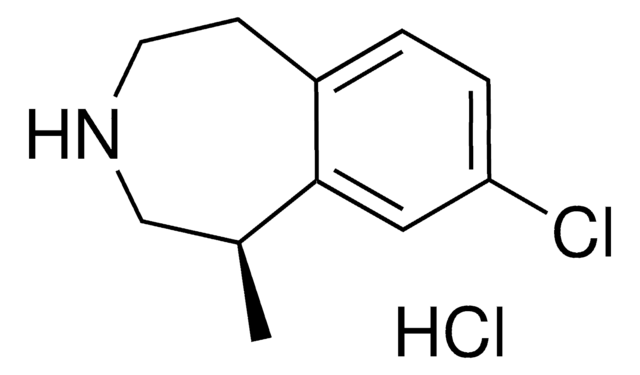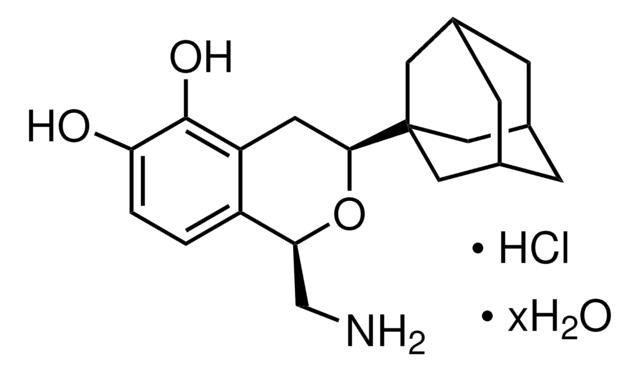SML0198
Fenoldopam mesylate
≥98% (HPLC)
Synonym(s):
Fenoldopam methanesulfonate
About This Item
Recommended Products
Assay
≥98% (HPLC)
form
powder
storage condition
desiccated
color
white to tan
mp
271 °C (lit.)
solubility
DMSO: ≥15 mg/mL at ~60 °C
storage temp.
room temp
SMILES string
CS(O)(=O)=O.Oc1ccc(cc1)C2CNCCc3c(Cl)c(O)c(O)cc23
InChI
1S/C16H16ClNO3.CH4O3S/c17-15-11-5-6-18-8-13(9-1-3-10(19)4-2-9)12(11)7-14(20)16(15)21;1-5(2,3)4/h1-4,7,13,18-21H,5-6,8H2;1H3,(H,2,3,4)
InChI key
CVKUMNRCIJMVAR-UHFFFAOYSA-N
Gene Information
human ... DRD1(1812)
Looking for similar products? Visit Product Comparison Guide
Application
Biochem/physiol Actions
Features and Benefits
Signal Word
Warning
Hazard Statements
Precautionary Statements
Hazard Classifications
Acute Tox. 4 Oral - Eye Irrit. 2 - Skin Sens. 1
Storage Class Code
11 - Combustible Solids
WGK
WGK 3
Flash Point(F)
Not applicable
Flash Point(C)
Not applicable
Certificates of Analysis (COA)
Search for Certificates of Analysis (COA) by entering the products Lot/Batch Number. Lot and Batch Numbers can be found on a product’s label following the words ‘Lot’ or ‘Batch’.
Already Own This Product?
Find documentation for the products that you have recently purchased in the Document Library.
Articles
We offer many products related to dopamine receptors for your research needs.
Our team of scientists has experience in all areas of research including Life Science, Material Science, Chemical Synthesis, Chromatography, Analytical and many others.
Contact Technical Service